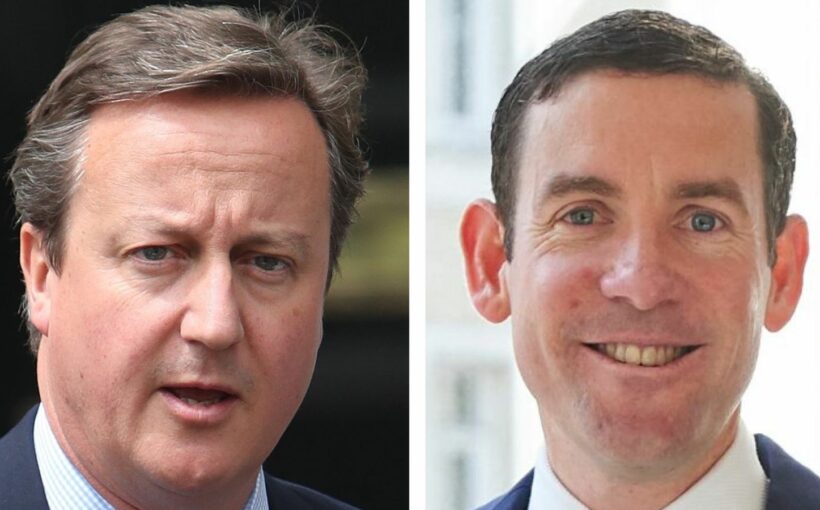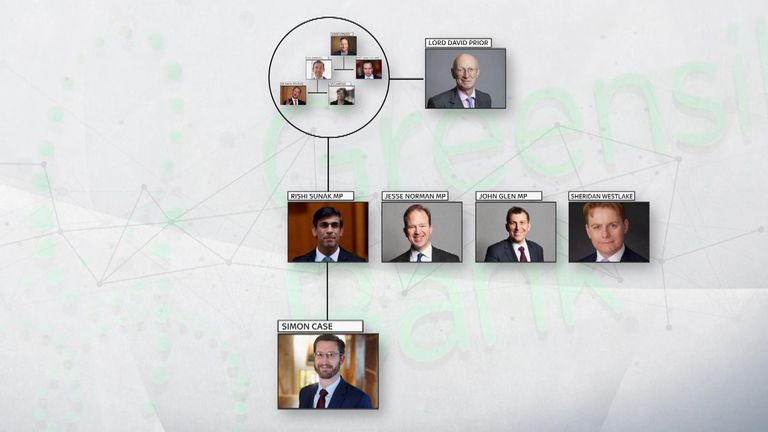Since becoming embroiled in the Westminster lobbying scandal David Cameron has kept a low profile, but all that ends on Thursday.
Following the release of 56 WhatsApps, texts and emails he sent to senior figures in the civil service, Bank of England and government, there are plenty of questions the former prime minister could be asked when he faces MPs on the House of Commons’ Treasury committee.
These include:
Why was Lex Greensill made a government adviser while he was PM?
There remains a great deal of uncertainty around Lex Greensill‘s time working as an adviser in government while Mr Cameron was prime minister.
A photograph of a business card used by Mr Greensill has emerged in which his place of work is listed as 10 Downing Street and his title is given as “senior advisor, the prime minister’s officer”.
When the business card image came to light a government statement said that Mr Greensill had acted as a “supply chain finance adviser from 2012 to 2015” and a crown representative from 2013 to 2016.
The statement said he had not been paid for either role and “his appointment was approved in the normal manner”.
However, in evidence given to MPs last month, cabinet secretary Simon Case said that no contract had been found for Mr Greensill’s employment, despite him having been granted security clearance for access to Downing Street and the Cabinet Office.
“We cannot explain how these decisions were taken or why,” said Mr Case.
“It looks like there were conflicts and we are not clear on how they were managed. From our cursory look, we can’t see the evidence.”
At a Treasury committee hearing on Tuesday, Mr Greensill said his work for the Cabinet Office was focused entirely on supply chain finance and that he “provided those services to the government at no cost” adding: “I was simply trying to share my experience and give something back.”
In his own statement last month, Mr Cameron said a “false impression has been created that Lex Greensill was a close member of my team”.
“I met him twice at most in the entirety of my time as prime minister,” he added.
MPs may well attempt to probe the former prime minister further on how that stacks up with Mr Greensill’s business card and the opacity around his employment.
When did he become aware things were going wrong for Greensill?
Greensill Capital’s collapse in March this year, which has put around 5,000 jobs at risk in the UK and tens of thousands more globally, was the result of its insurer withdrawing cover for the loans the firm was issuing.
In April, Mr Cameron said he did not know about Greensill’s financial difficulties until December last year.
To some degree that fits with what Mr Greensill told the Treasury committee on Tuesday, when he said the first concerns he had about the firm itself were also in December.
However, Mr Greensill also told MPs that he had first become aware of problems in “our supply chain” in March 2020, and confirmed he had discussed this with Mr Cameron.
The timing of this is important as it coincides with Mr Cameron’s lobbying blitz of senior officials and ministers between March to May 2020.
The former prime minister sent text messages to Rishi Sunak, Michael Gove, a senior Downing Street adviser, the deputy governor of the Bank of England and the Treasury’s most senior civil servant, among others.
That raises questions over whether the urgency and impatience that is so apparent in his communications was the result of his certainty that Greensill could help government assist small businesses in the pandemic, or whether in fact it reflected his own panic about Greensill’s future.
Was the Treasury correct to reject his lobbying efforts?
One of the notable things about the investigations so far, and the correspondence that has been released, is that the Treasury and Bank of England appear to have rejected the lobbying efforts of Greensill, despite the relentless messages and calls to senior figures being made by Mr Cameron.
The central goal of his lobbying was to persuade the government to allow Greensill to become an accredited lender of government backed loans as part of the Corporate Covid Financing Facility (CCFF).
Subscribe to the All Out Politics podcast on Apple Podcasts, Google Podcasts, Spotify, Spreaker
When he was rebuffed, Mr Cameron responded by saying the decision was “nuts” and “bonkers”, and said he was going to call “everyone” – presumably to try and overturn the decision.
It is possible the committee will want to ask Mr Cameron about whether he still believes the assertions he was making then, or whether he thinks the Treasury’s response in rejecting his efforts has proved to be the right one.
Source: Read Full Article


